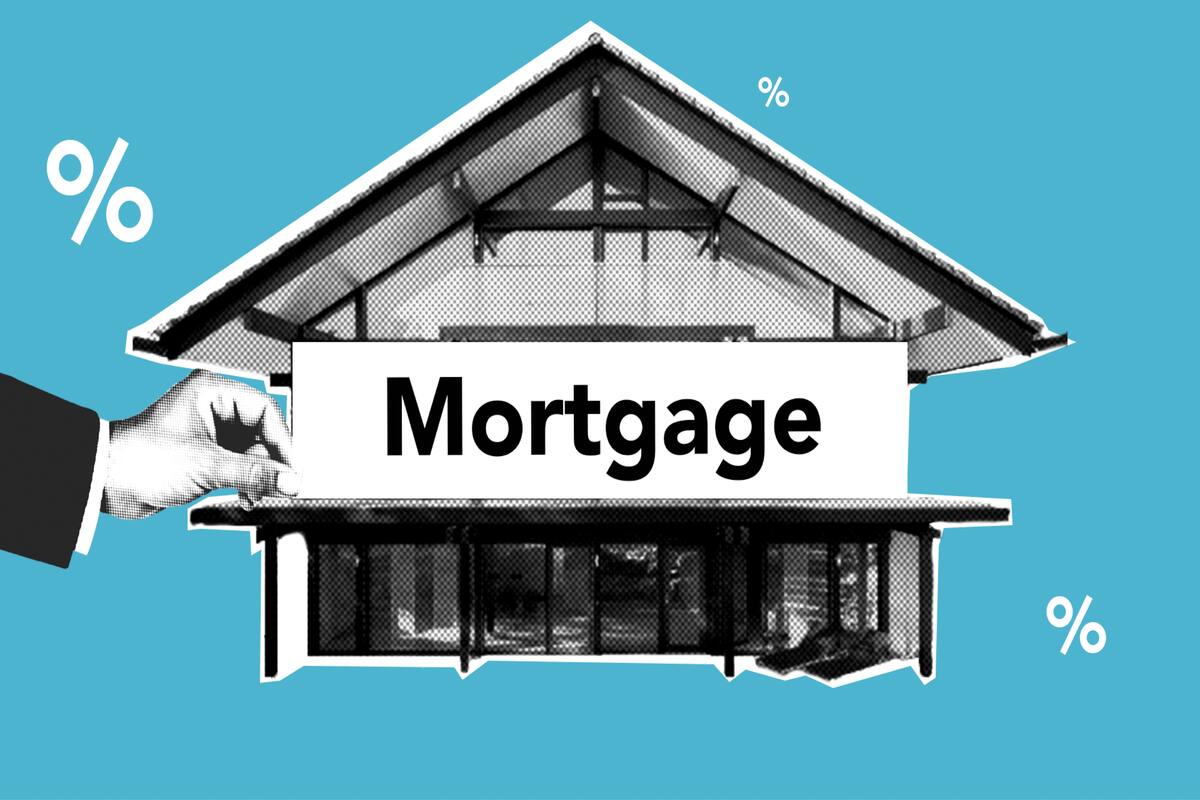Variable vs. Fixed Mortgage: the Pros and Cons
October 18th, 2023

Is it really that important what type of mortgage you get? Will the choice between a variable vs. a fixed mortgage really have that big of an effect on your financial future? The answer to both questions is a clear yes. This is one of the most important choices any future homeowner will ever make.
Consequently, it’s very important to understand how variable- and fixed-rate mortgages work, what their unique advantages and disadvantages are, and which one is better for you. And that is the purpose of this article – we will discuss variable vs. fixed mortgages in depth to help you make an informed choice.

Variable Rate Mortgages
Variable-rate mortgages (also called adjustable-rate mortgages or ARMs) pique the interest of many potential homeowners. These mortgages can seem like an attractive option due to their potential to offer lower initial interest rates. However, they come with a level of uncertainty that may not be suitable for everyone.
So are ARMs really a good choice? Let's dig a little deeper.
What Is a Variable Rate Mortgage?
A variable-rate mortgage is a type of home loan where the interest rate fluctuates periodically based on a benchmark rate or index. Until 2020, the most common index used for variable-rate mortgages was the London Interbank Offered Rate (LIBOR), but it has since been replaced by the Secure Overnight Financing Rate (SOFR).
This means that the interest rate on your mortgage can rise or fall over time, causing your monthly payments to vary accordingly. The interest rate adjustments typically occur at predetermined intervals, such as annually or every few years.
Variable-rate mortgages usually start with a fixed-rate period, usually ranging from one to ten years. Your interest rate remains stable during this time, however, once the fixed period ends, your interest rate becomes variable, and your monthly payments can adjust up or down with each rate change.
The variability of interest rates is the key feature of a variable-rate mortgage.
Pros and Cons of a Variable Rate Mortgage
There are several advantages and disadvantages to a variable mortgage rate.
Pros:
- Lower Initial Interest Rate: One of the most enticing aspects of variable-rate mortgages is the lower initial interest rate compared to fixed-rate mortgages.
- Potential for Lower Long-Term Costs: If market interest rates remain stable or decrease over time, variable-rate mortgages can be more cost-effective in the long run, as your interest payments may stay lower. But that is a huge if.
- Short-Term Affordability: Variable rate mortgages are suitable for those who plan to stay in their homes for only a few years, as they can take advantage of the lower initial rates before any potential increases occur and potentially resel the property later.
Cons:
- Uncertainty: The primary drawback of variable rate mortgages is the uncertainty they introduce. Your monthly payments can change, making it challenging to budget for homeowners with fixed incomes or tight budgets.
- Risk of Rising Rates: If market interest rates increase, as they often do over time, your monthly payments will rise. This can put significant financial strain on homeowners, especially if rates increase substantially.
- Lack of Predictability: The variability of interest rates of adjustable-rate mortgages can make it difficult to plan for the future, making it hard to anticipate your long-term financial commitments.
When Should I Choose a Variable-Rate Mortgage?
Choosing a variable-rate mortgage can be a sound decision, but it's essential to consider your financial situation and long-term goals. It's advisable to consider a variable rate mortgage when:
- You anticipate interest rates will remain stable or decrease in the short to medium term.
- You have a higher risk tolerance and can handle fluctuations in your monthly payments.
- You don't plan to stay in your home for an extended period, so you can take advantage of the initial lower rates.
Fixed Rate Mortgages
Fixed-rate mortgages offer a level of stability and predictability that variable mortgage rate cannot match. These mortgages have been a popular choice for homeowners who value consistent monthly payments and want to avoid the risks associated with interest rate fluctuations.
What Is a Fixed-Rate Mortgage?
A fixed-rate mortgage is a common type of home loan where the interest rate remains constant throughout the entire repayment term. So there is no fluctuation in your interest rate, ensuring that your monthly mortgage payments stay the same. This predictability is appealing to many homeowners with stable but relatively tight finances.
With a fixed-rate mortgage, you'll know exactly how much you need to budget for your mortgage payments every month. This stability provides a sense of security that can make financial planning more straightforward.
Pros and Cons of a Fixed Rate Mortgage
As we're discussing variable vs. fixed mortgages, let's also take a look at the pros and cons of fixed-rate mortgages.
Pros:
- Predictable Monthly Payments: The most significant advantage of a fixed-rate mortgage is the predictability it offers. Your monthly payments will remain the same, making budgeting and financial planning more manageable.
- Stable Long-Term Costs: With a fixed-rate mortgage, you won't have to worry about rising interest rates increasing your monthly payments. This is ideal for homeowners who want to ensure that their housing costs stay consistent, even during times of economic uncertainty.
Cons:
- Higher Initial Interest Rates: Fixed-rate mortgages typically come with higher initial interest rates compared to variable rate mortgages. This means higher initial monthly payments, which can be a barrier for some homebuyers.
- Potentially Higher Long-Term Costs: If market interest rates decrease, you may end up paying more in interest over the life of your fixed-rate mortgage than you would with a variable rate mortgage. But this is another huge if.
- Less Flexibility: Fixed-rate mortgages offer less flexibility in terms of taking advantage of potential interest rate decreases in the future.
When Should I Choose a Fixed Rate Mortgage?
Opting for a fixed-rate mortgage can be a wise choice, especially if you prioritize stability and predictability. Consider a fixed rate mortgage when:
- You have a strict budget and need consistent monthly payments.
- You plan to stay in your home for the long term and want to avoid the risk of rising interest rates.
- You prefer financial stability and peace of mind over potentially lower initial rates.
Variable vs. Fixed Mortgage: Summary

In summary, the choice between a variable-rate mortgage and a fixed-rate mortgage boils down to your financial situation, risk tolerance, and long-term goals.
- Variable Rate Mortgages offer lower initial interest rates and potential long-term savings but come with the risk of rising rates and unpredictable monthly payments. They are suitable for those who can handle fluctuating payments and expect stable or decreasing interest rates.
- Fixed Rate Mortgages provide predictability and stability, with consistent monthly payments. However, they have higher initial interest rates and may not offer potential long-term savings if market interest rates decrease.
Factors to Consider when Deciding on the Type of Mortgage
When deciding between a variable-rate mortgage and a fixed-rate mortgage, there are several critical factors to consider:
- Financial Stability: Assess your current financial situation, including your income, expenses, and the level of risk you can comfortably manage. If you have a fixed income or a tight budget, a fixed-rate mortgage may be a safer choice.
- Long-Term Plans: Consider how long you intend to stay in your home. If it's a short-term investment, a variable rate mortgage might offer lower initial rates. For long-term homeownership, a fixed-rate mortgage can provide peace of mind.
- Interest Rate Trends: Keep an eye on current and expected future interest rate trends. If rates are relatively low and projected to remain stable, a variable rate mortgage might be more appealing.
- Risk Tolerance: Evaluate your comfort level with financial risk. Are you willing to accept the possibility of rising interest rates and fluctuating payments in exchange for potential savings with a variable rate mortgage?
- Budgeting Skills: Consider your ability to budget effectively. And be truthful with yourself. If you prefer a straightforward budget and the peace of mind that comes with stable payments, a fixed-rate loan is likely the better choice.
- Economic Conditions: Pay attention to broader economic conditions and events. Economic uncertainties, such as inflation or changes in government policies, can impact interest rates and mortgage decisions.
- Consultation with a Financial Advisor: It's always a good idea to seek advice from a financial advisor or mortgage expert. They can provide personalized guidance based on your specific situation and goals and can instruct you on how to negotiate with mortgage lenders.
You’ve Chosen a Mortgage Type – What’s the Next Step?
You’re likely choosing between fixed vs. variable mortgages because you wish to buy property. After you have made your choice, found a property you wish to buy, and secured a loan, there’s still a lot of bureaucracy left before you can buy a home.
And this is something Lightspeed Escrow can help with. We provide escrow services that will help you real estate transaction go as smoothly as possible. We can make sure everyone honours the terms of the agreement and help you avoid any unnecessary delays or issues.
If you wish to learn more about the services we provide or just have general questions about escrow, feel free to contact us at any time.